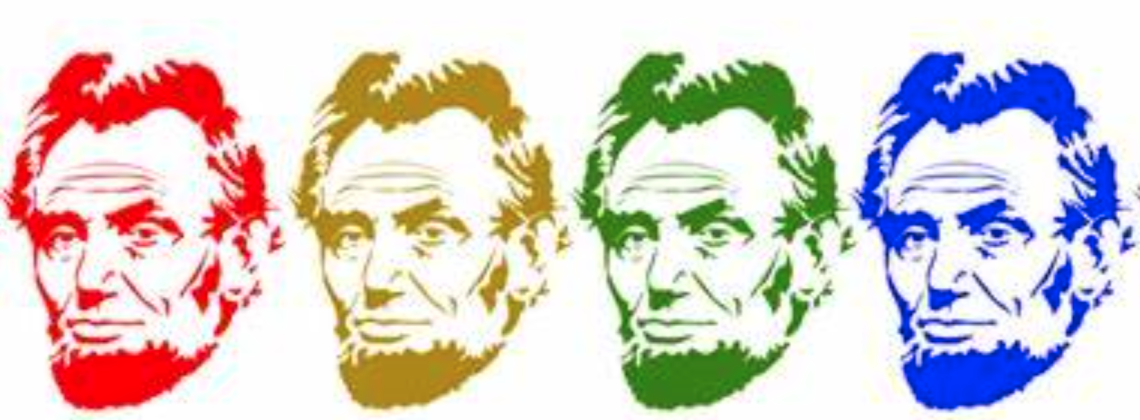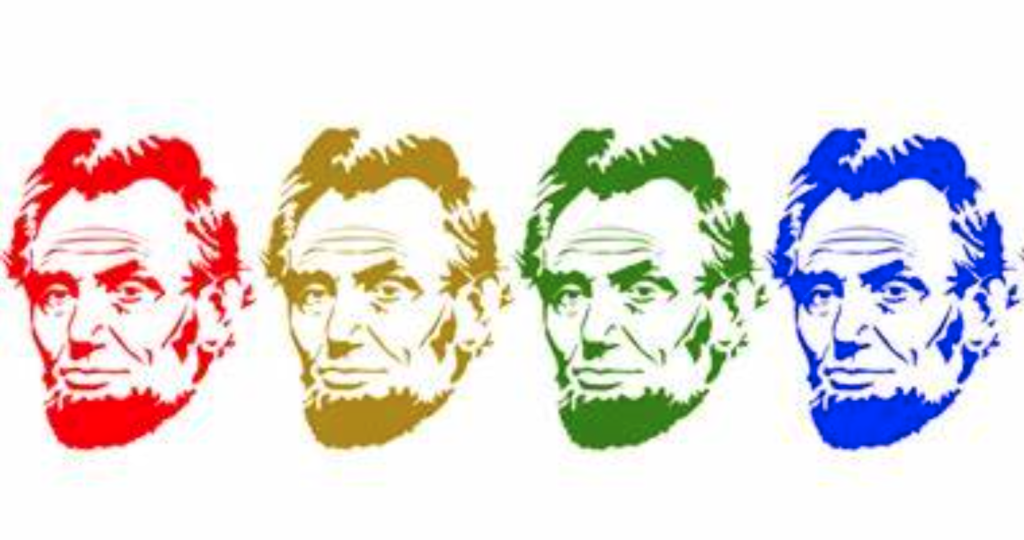

Allen Guelzo turns to Lincoln to issue a message to America
Our Ancient Faith: Lincoln, Democracy, and the American Experiment by Allen Guelzo. Knopf, 2024. 272 pp., $30.00
The magnanimous or great-souled man, says Aristotle, “must be good in the highest.” “Without virtue,” continues the philosopher, “it is not easy to bear gracefully the goods of fortune.”
Toward the end of Our Ancient Faith: Lincoln, Democracy, and the American Experiment, Allen Guelzo makes a reference to Aristotle’s “great-souled” man, drawing attention to Lincoln and his many virtues. Guelzo, the author of several widely respected books on Lincoln, can be justly considered the dean of Lincoln scholars today. Our Ancient Faith, his latest work, is not a valedictory statement on Lincoln, I hope, but it reads that way. Among this book’s many virtues is its subtle criticism of contemporary political discourse but without explicit reference to present-day controversies. Only a dull reader, however, would fail to connect the dots.
This makes Guelzo’s book both timely and timeless. Democracy will never be free of shortcomings, bad actors, and threats to the democratic spirit. James Madison, namesake of the institute to which Guelzo belongs, would remind us that the problems of democracy are sown into the very nature of man. Guelzo offers Lincoln as a roadmap or template by which we can judge whether democracy is hitting its mark. To the extent it is not, Lincoln is one of history’s greatest guides for a return to foundational democratic principles.
Guelzo begins by proposing certain essential ideals for liberal democracy, stressing citizenship, elections, and free speech as formative for a thriving democratic people. Lincoln himself was surprisingly parsimonious in his definition of democracy: “As I would not be a slave, so I would not be a master. This expresses my idea of democracy. Whatever differs from this, to the extent of the difference, is no democracy.”
Lincoln saw in the human soul what Augustine had called the libido dominandi, the lust to dominate. Lincoln viewed governing as a contest between reason and passion, as articulated in his legendary address on “The Perpetuation of Our Institutions.” That speech and much of Lincoln’s basic political philosophy were shaped by the specter of violence and demagoguery in Jacksonian America. Jackson, writes Guelzo, “was the first singular example of what James Madison most feared from democracy—a weakness for demagogues who would play to fear, anger, and contempt, and persuade Americans to put more faith in power than in liberty.”
In this vein, Lincoln later abhorred the attack on democratic elections exemplified by Southern secession. Guelzo establishes that Lincoln saw Southern disunity as emanating from the politics of passion. Thus, Lincoln said, “Though passion may have strained, it must not break our bonds of affection.” Here is an instance where the attentive reader will make connections to our present predicament. We might note the many politicians and activists who seek power and money through appeals to passion and the breaking of national bonds.
Lincoln echoed the warnings of those American founders who worried that the problem of democratic government is not that it will act too slowly but that it will act too quickly, rashly enacting poor policy or trampling on minority rights. Hamilton famously warned against government based on “accident and force” rather than “reflection and choice,” bemoaning the “perpetual vibrations between the extremes of tyranny and anarchy” that characterized the “petty republics” of Greece and Italy. Similarly, Madison noted that even if every Athenian had been a Socrates, “every Athenian assembly would have been a mob.” So, Guelzo argues through Lincoln, democracy relies on certain habits—he borrows the term mores from Tocqueville—both formal and informal, to limit and discipline democratic opinion. For Lincoln, among these mores were reverence for the rule of law and dedication to natural rights.
One of the book’s highlights is its treatment of Lincoln’s economic vision, a subject I believe is neglected in the study of Lincolnian thought. Lincoln’s political economy is central to understanding his view of freedom. Guelzo notes that Lincoln does not adopt the class-based view of economics that typifies Marxist thought. Lincoln argued, “I don’t believe in a law to prevent a man from getting rich; it would do more harm than good. So while we do not propose any war upon capital, we do wish to allow the humblest man an equal chance to get rich with everybody else.” Lincoln rejected the arguments of George Fitzhugh that Blacks were better off under slavery because benevolent masters fed, clothed, and housed them. Like communism, the South kept its laboring class equal by enslaving it.
For Lincoln, economic resentment was one of the passions that could threaten democracy. By contrast, Lincoln and other free labor advocates argued for a “right to rise.” Lincoln believed that trade could bring the country together. Recall your childhood, when you might have traded Hot Wheels cars and baseball cards with your friends. This is one way in which kids solidify friendships, establishing mutual trust. In a much more sophisticated way, Lincoln believed that trade would bring the American people into regular contact, building relationships and solidifying the sense of unity necessary for a strong republic. Guelzo persuasively argues that Lincoln’s economics stress aiding the entrepreneur’s quest to improve the regulation of business conditions, which could otherwise erect barriers to property ownership.
This economic argument is tied to characteristics of a Lincolnian democratic culture. “You can have a democracy without the underpinnings of culture,” argues Guelzo, “but you will probably not have it for very long, and even while you have it, it will be disappointing in its results.” Philip Rieff argued that a culture is defined as much by what it forbids as by what it actually does. A culture of passion, a culture of desire or indulgence, is more accurately an anti-culture. For Lincoln, a democratic culture is formed through valuing property, religion, toleration, and electioneering. Ownership of property gives an individual a stake in society and the ability to provide for himself. It allows him to be truly independent.
Regarding religion, Guelzo rightly notes that Lincoln’s beliefs are famously ambiguous, “cagey” even. To say the least, Lincoln’s own religious convictions were heterodox from the Christian point of view. And yet, Lincoln accepted basic Christian morality and saw religion as a fundamental component of a healthy democracy. Lincoln’s dedication to natural rights seems to be grounded in some kind of theism. Finally, as Lincoln grew older and experienced tragedy, not the least of which was the Civil War, he increasingly emphasized the will of God and the belief that God intervenes in history.
Lincoln was tolerant: He adopted a kind of live-and-let-live attitude. His basic belief in human equality prompted him to reject “obsession with ethnicity, tribe, or soil,” in Guelzo’s estimation. Lincoln’s tolerance was not milquetoast ambivalence but rather practical forbearance toward those with whom we disagree.
In harmony with Tocqueville, Lincoln saw elections as essential for the moral formation of citizens. Elections promote a public spiritedness that is a central virtue of the democratic citizen. Unlike in more autocratic forms of government, actual citizenship, as Aristotle noted, asks people not just to be governed but to govern in return. Even in the midst of civil war, Lincoln insisted on not cancelling elections in 1862 and, more notably, 1864, when his defeat seemed likely. Guelzo adroitly quotes Lincoln saying that he did not “deny the possibility that the people may err in an election,” but if they do, then “the true cure is in the next election,” a statement pregnant with meaning for those of us living in post-2020 America.
If democracy is to thrive in America, it must have a rebirth of Lincolnian virtues. Guelzo identifies three characteristics of a Lincolnian democracy: consent, equality, and citizenship. Regarding consent, Guelzo notes the rise of bureaucracy in our age, rendering many of the most important decisions affecting the people a product not of democratically elected representatives but of unelected bureaucrats in an increasingly powerful administrative state. Concerning equality, Guelzo maintains we must “embrace an equality in which no privileged groups claim superior sanction for power.”
While Guelzo leaves the term “privilege” conspicuously undefined, he does note that the belief in equality will promote a “system that protects American industry and productivity, empowers and organizes workers and small producers, encourages the re-shoring of American productivity, and begins the perilous and unpredictable work of leveling the dangerous cliffs of class alienation.” He implies that this notion of equality rejects crude ethnic or racial politics, emphasizing what we have in common over what differentiates us. He notes in the book’s discussion of race that America is a “demos, not an ethnos.” Finally, in the face of demagoguery, democracy must promote the virtues of citizenship, including “resilience, humility, persistence, work, and dignity,” all of which Guelzo sees exemplified by Abraham Lincoln.
The other day I was in the car with my son listening to a podcast discussing current affairs. Talk turned to the Israeli war in Gaza. In that moment it struck my powerfully how lucky we are to be Americans. God could have put my son and me anywhere on Earth. Most of those places, such as Israel and Gaza, are either poor or torn by violence or both. This country with its democracy, gifted to us by our forebearers, is precious.
Under the inspiration of Abraham Lincoln, Guelzo has written a book that inspires an increased devotion to the cause of American democracy. As Lincoln noted, “We shall nobly save or meanly lose the last best hope of earth. Other means may succeed; this could not fail. The way is plain, peaceful, generous, just—a way which if followed the world will forever applaud and God must forever bless.” Allen Guelzo has helped show us the way. Will we be wise enough to follow?
Jon D. Schaff of Professor of Political Science at Northern State University in Aberdeen, South Dakota. He’s the author of Abraham Lincoln’s Statesmanship and the Limits of Liberal Democracy and co-author of Age of Anxiety: Meaning, Identity, and Politics in 21st Century Film and Literature.